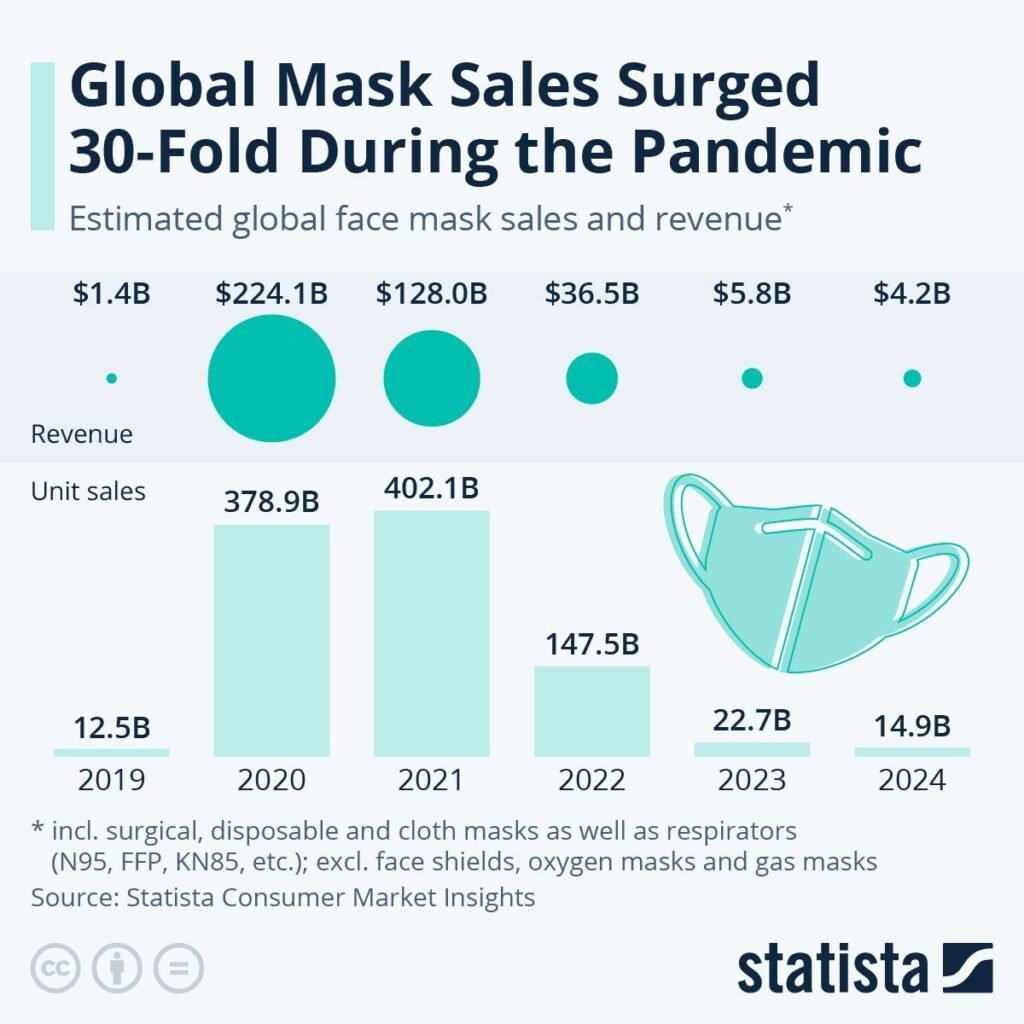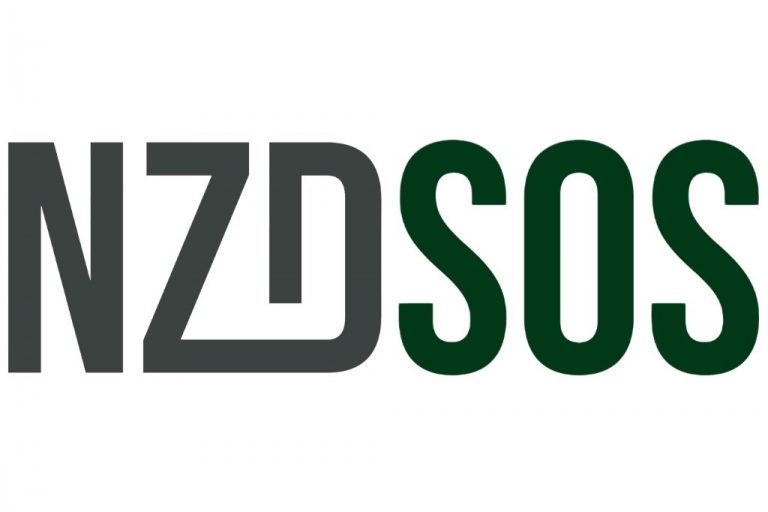The Collapsing Face Mask Hoax

Face masks have been a highly lucrative element of corporate wealth generated by the pandemic. This likely explains the inconsistent and chaotic messaging from corrupted public health officials around recommendations for their use, as we have previously described.

Meanwhile, evidence on the risks and benefits of face mask use continues to accumulate. In January 2023 the Cochrane Review concluded that face masks make little to no difference to viral control in community settings. This comes as no surprise to those trained in the use of face masks in clinical care settings as nothing has changed. Today’s accumulating research, conducted to resolve controversies created by vested interests, merely reinforces established principles relating to the conditional use of face masks in limited settings, and their known potential for harms.
On 5 April 2023, Frontiers in Public Health published Physio-metabolic and clinical consequences of wearing face masks—Systematic review with meta-analysis and comprehensive evaluation. The role of systematic reviews and meta analyses is to assess the consistency of research results across all studies investigating a given issue. Whilst they can be subject to study design flaws and bias, they are considered the highest level of evidence because they encompass all relevant research studies rather than a single trial which may be more susceptible to subjective findings. This is often depicted via the evidence pyramid.

Meta-analyses differ from systematic reviews in that statistical calculations are used to analyse the outcomes of similar studies. As with this study, meta-analyses are often included within systematic reviews. Both methodologies use specific criteria and a structured approach in searching for relevant studies, determining whether they should be included in the review, then synthesising and summarising results of included studies.
The research process for systematic reviews and meta analyses involves a team of people who independently analyse the data from each article. The authors of this study have a range of medical science backgrounds, providing a broad perspective for the best results, and they declare no conflicts of interest. The article is comprehensive in its description of the study design, process, potential limitations, synthesis of evidence, results and conclusions.
Due to mask mandates, the authors asked the question, “what long term effects might widespread mask wearing have on breathing?” Population-wide compulsory wearing of face masks provided good research conditions for studying the potential adverse effects.
The review included surgical and high filtration (FFP2/N95) face masks worn by humans of all ages and genders, evaluated in both controlled trials (randomised and non-randomised) and observational studies. Participants were predominantly female with a median age of 34.8 years. A range of measurable signs and symptoms, mainly of a short term nature, but with potential long term consequences, were included as study outcomes and the median duration of mask wearing was only 18 minutes. As such the analysis does not include long term effects (for example impact on child development and dental health) of persistent face mask use, although the physiological mechanisms infer potential long term consequences, which the authors describe.
Adverse Effects of Face Mask Use
Mask induced exhaustion syndrome (MIES) can have long term clinical consequences, especially for vulnerable groups. So far, several mask related symptoms may have been misinterpreted as long Covid-19 symptoms. In any case, the possible MIES contrasts with the WHO definition of health. … This systematic review comprehensively revealed ample evidence for adverse physio-metabolic and clinical outcomes of medical face masks, with worse outcomes in the case of N95 masks.
The authors concluded that use of face masks impedes natural breathing with significant physical effects and the potential for negative public health consequences. High filtration face masks (N95/FFP2) had a significantly stronger impact than surgical face masks.
Potential physiological changes include restricted oxygen uptake leading to hypoxia (low oxygen in blood), and increased carbon dioxide retention leading to hypercarbia (elevated carbon dioxide in blood). These conditions can lead to a cascade of biological responses including immune suppression and consequent increased risk of infection and severe disease outcomes, including but not limited to, Covid-19. Increased carbon dioxide can lead to inflammatory processes and vascular and organ damage. Multiple possible mechanisms for these effects are described in the article.
Increased air and skin temperature and humidity within the dead space around face masks can nebulise infectious droplets which can in turn increase the growth of infectious organisms (specifically bacteria and fungi) on the mask surface and within the mask mesh. Combined with the interference of protective organisms living on the skin and mucous membranes around the mask, this can create an environment for normally absent or rare infections to thrive and cause disease.
Compensatory mechanisms caused by the altered oxygen/carbon dioxide levels of face mask wearers can lead to changes such as increased heart rate, altered respiratory rate and pattern, and breathing difficulties. These can cause changes to blood composition and potential toxicity to the renal, nervous and cardiovascular systems. The authors describe these mechanisms in detail.
Multiple other possible effects are described by the authors, such as potential damage to the retina of the eyes, increased blood pressure, fatigue, confusion, headache, skin irritation and depression. The potential mechanisms for symptoms are outlined. Mask induced exhaustion syndrome (MIES) is described as a chronic condition which is comparable to other conditions caused by environmental exposure such as cigarette smoking and low-level lead exposure.
Other Perspectives and Considerations
Author and substack blogger Ian Miller has shown the faux logic of face mask use throughout the pandemic. His latest post broadens his target to our horrendous rise in deaths and disablement since the vaccine rollout, now unmistakable and frankly unforgivable. He knows clearly where the blame lies.
NZDSOS wonders what the environmental impact will be of many billions of masks ending up in the sea, and contributing to particulate contamination of the air when they are incinerated. And their production and destruction will hardly contribute to net zero.
Conclusion
Whilst evidence for the benefits of face masks are at best questionable, the risks associated with their use are outlined well by this thorough and articulate analysis.
There are widespread individual and public health consequences to face mask wearing including:
- Increased risk of catching covid and other respiratory disease.
- MIES (mask induced exhaustion syndrome) – probably often mis-diagnosed as long covid.
- Other medical conditions such as elevated blood pressure and depression.
- As yet un-quantified but very likely significant effects on childhood development, mental health effects in all age groups, communication difficulties and general de-humanisation in both the wearer and the observer.
It is time to stop complying with ill-advised policies and start demanding a return to evidence based public health practice.







Pretty weak article considering the vast volume of hard data and physical evidence that has been available for well over 30+ years that I am aware of.
Manufactures own data says that masks are ineffective against anything the size of a fictitious virus.
Common sense,(something very few possess),says the whole scamdemic was a planned attack on society as do all the published papers such as Operation Lockstep, minute of Event 201 etc. Hell ‘Monkey pox’ was planned and a paper published about it a YEAR before the start date, May 15th 2022, which was published in the paper!
The average ‘doctor’ is a brain dead idiot and a murderer. Incompetent and utterly untrustworthy. Killers for a dollar.
Dear Barry Taylor, yes- they are indoctrinated. Almost everyone is. If one looks as far back as the etymology of ‘medicine’ and even ‘doctor’ one finds they were related to the priest class, or was that the merchant class? Its meaning changed and extended to anyone who could pass a test, and so did our world.
The alternative to medication is meditation- again that root ‘med’ is vital to understanding the big picture. The entire theatrical play of Covid has its roots in the spiritual realm- but the less said about that to New Zealanders the better.
Truthfully, there is no teacher like death. If one has no consciously developed spiritual substance, death is a scary idea. One must overcome fear of death using meditation- not medication.
Love from an ex-kiwi.